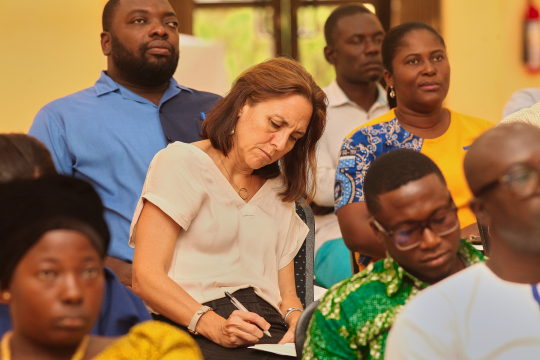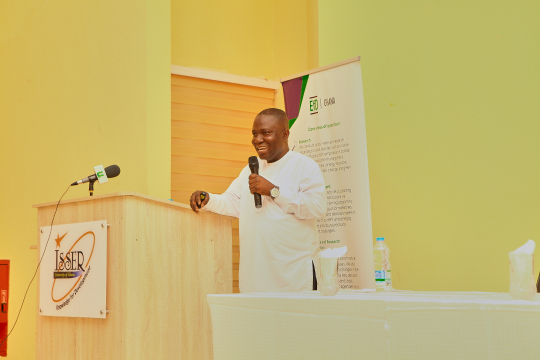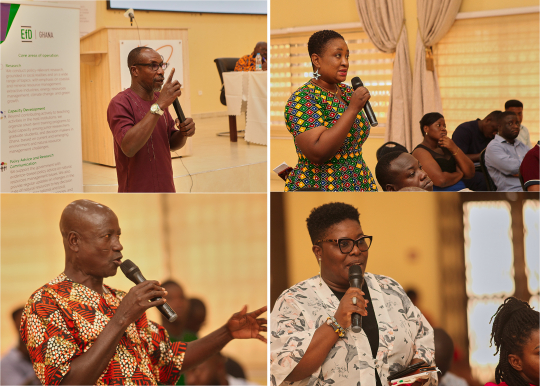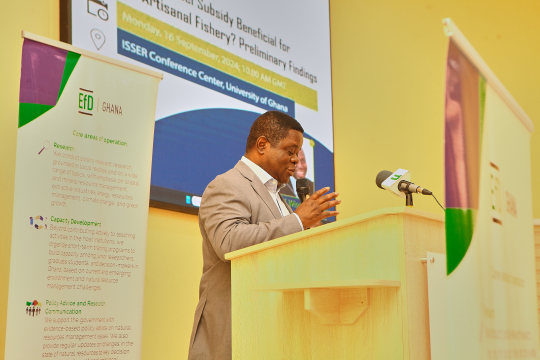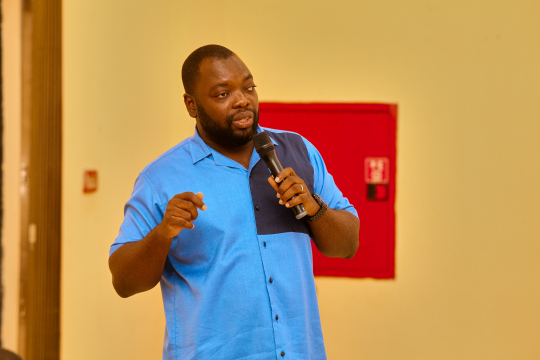At a recent seminar hosted by EfD Ghana, participants called for urgent policy changes to address inefficiencies in Ghana’s artisanal fishing sector. Titled “Is Premix Fuel Subsidy in Ghana’s Artisanal Fishery Desirable? Preliminary Results,” the seminar highlighted significant gaps in the administration of the premix fuel subsidy and sparked discussions on sustainable solutions for both the fishing community and marine ecosystems.
“About 91% of fishers don’t believe the subsidy is benefiting them,” revealed Professor Wisdom Akpalu, Director of EfD Ghana. The study uncovered widespread dissatisfaction with the subsidy, leading to recommendations ranging from selling premix fuel at market prices to its complete removal. Wisdom Akpalu noted that premix fuel accounts for over 60% of fishing costs, yet inefficiencies, including fuel diversion, have reduced its effectiveness. He proposed redirecting the estimated $40 million annual savings from the subsidy into livelihood programs for fishing communities.
Echoing this perspective, Michael Nokoe, fisherman and Chairman of the National Canoe Fishermen Council for the Western Region, voiced frustration over unreliable fuel supplies. “The subsidy, though introduced to support us, is no longer serving its purpose,” he said. Michael Nokoe suggested that selling premix fuel on the open market would ensure consistent access and reduce hoarding.
Another participant added, “We must do a cost-benefit analysis to ascertain the real value of these subsidies. Our approach should focus not just on subsidies but on ecosystem-based management.” Academics and other stakeholders agreed that the subsidy contributes to sector overcapacity and financial losses but proposed system improvements to enhance its effectiveness rather than outright removal.
A comprehensive approach to sustainability
Former Deputy Minister of Fisheries and Aquaculture, Moses Anim, explained that the premix fuel subsidy was originally intended to lower the cost of artisanal fishing and make fish more affordable. He underscored the vital role of artisanal fishing in enhancing livelihoods and stressed that policy changes should be approached comprehensively. Moses Anim highlighted ongoing government efforts to improve the subsidy’s administration, such as implementing canoe identification numbers and automated premix fuel dispensers.
The research team supported the call for a holistic strategy, aligning with EfD Ghana's advocacy for integrated management. They emphasized, however, that removing the premix fuel subsidy and reallocating the $40 million savings to alternative livelihood programs would address fund diversion issues, enhance economic opportunities in fishing communities, and ensure more efficient use of public resources.
Collaboration to amplify research impact
Participants highlighted the importance of collaborative research in shaping fisheries policy. The Director of the Centre for Coastal Management at the University of Cape Coast commended the study for filling a crucial gap in the premix fuel subsidy debate and called for stronger partnerships between research institutions. He emphasized the value of issuing a joint evidence-based position paper on fisheries, especially during ongoing political campaign period when political manifestoes are being developed.
ISSER Director Peter Quartey, reiterated the EfD Ghana’s commitment to conducting policy-driven research that promotes sustainable resource management and inclusive economic development. He encouraged stakeholders to work together in safeguarding Ghana’s marine resources and advancing the economic well-being of fishing communities.
The seminar, held on September 16 at the ISSER Conference Centre, University of Ghana, brought together key figures from the fisheries, academia, and policy sectors, fostering valuable discussions on the future of Ghana’s artisanal fisheries. The event also attracted media representatives, whose coverage underscored the seminar's key messages. Selected online reports are highlighted below.
B&FT - 91% of fishers support premix fuel subsidy removal
Graphic Online – Fishers want premix fuel subsidy removed - Study
GNA - Majority of fisherfolks want premix fuel subsidy removed — Study
By: Vicentia Quartey
